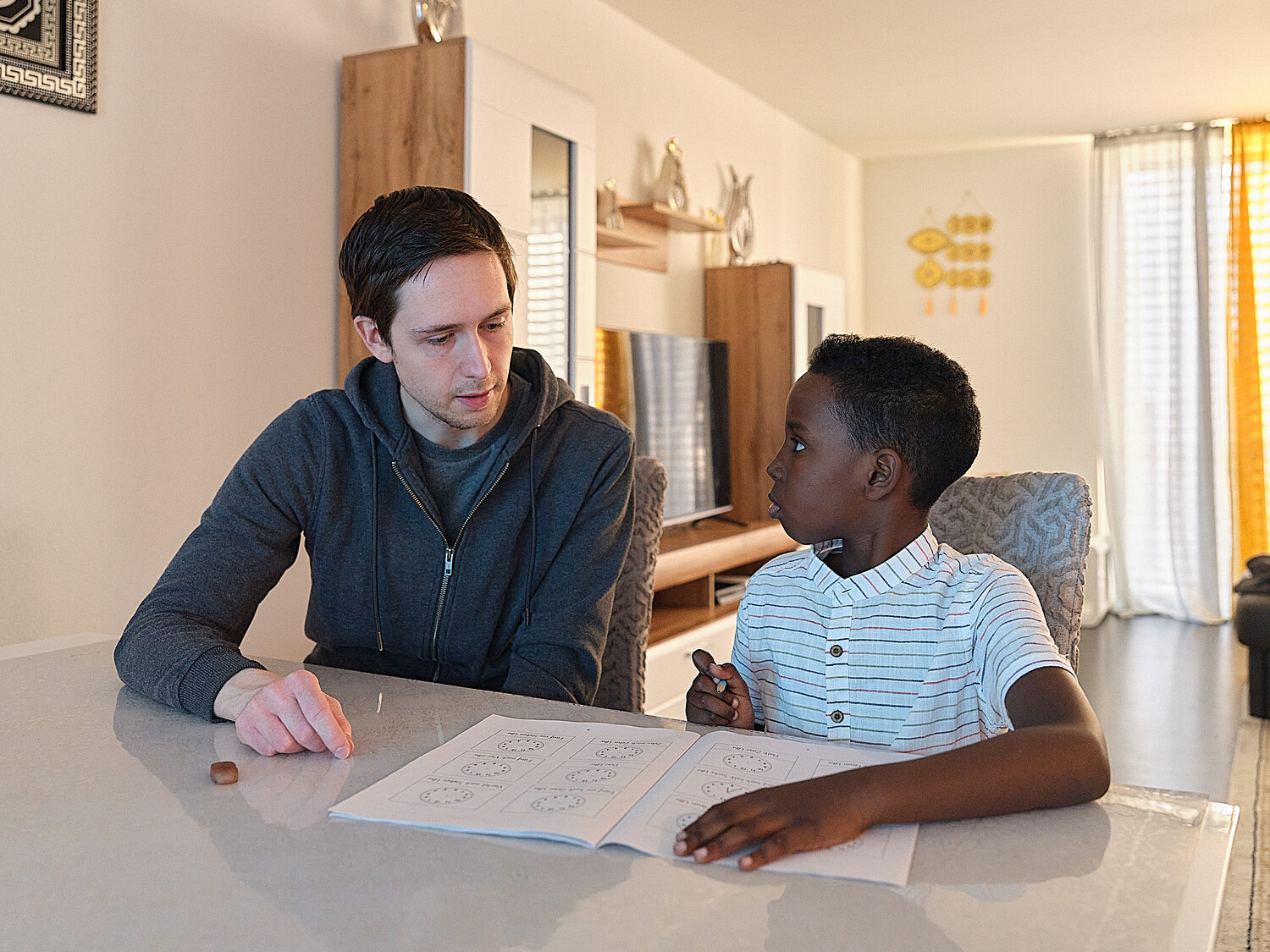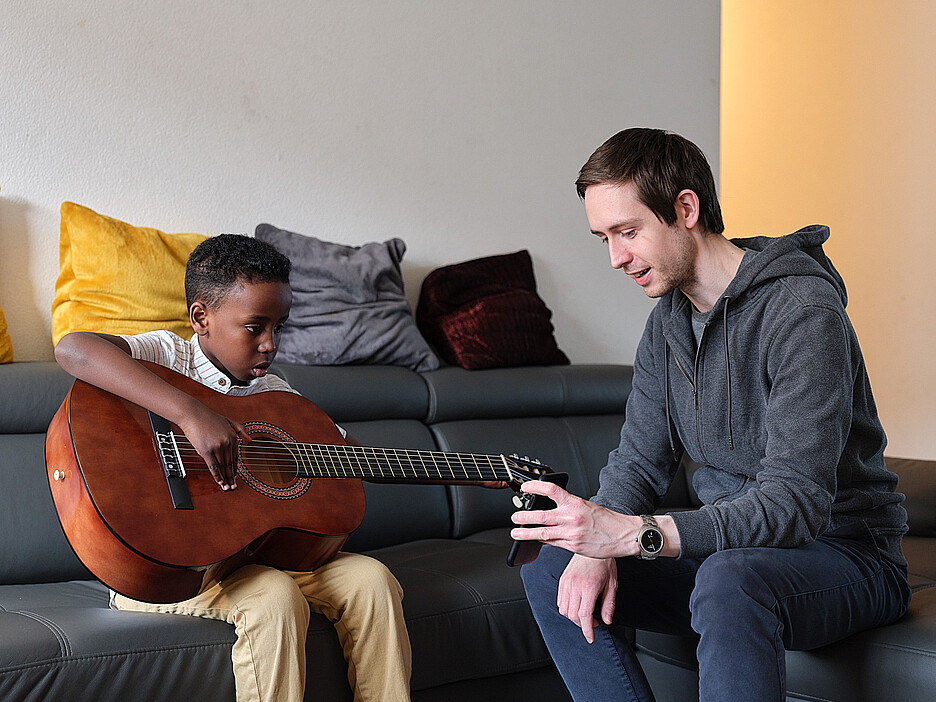
Future Kids: combining studies with social commitment
Doing good and receiving ECTS points in return: the Future Kids mentoring programme gives ZHAW students the opportunity to pass on their experience and knowledge in a playful manner. The programme’s prime aim, however, is helping to ensure equal opportunities in schools.
Tobias Wunderlin is involved in a whole range of activities. Apart from his part-time course in Business Information Technology at the ZHAW School of Management and Law he is a student trainee in software testing at Ergon Informatik AG, plays the guitar, double bass and piano in a number of music projects and is one of more than 56 ZHAW mentors taking part in the Future Kids mentoring programme. “I’ve always enjoyed tutoring and wanted to commit myself to a social cause. The Future Kids mentoring programme is ideal for me,” says the 28-year-old.
Equal opportunities for primary school children
ZHAW arranges for students to act as mentors to primary school children (mentees) for a full school year. They provide support that is unavailable to the children in their home environment but essential for boosting their chances of success in the Swiss school system. Future Kids was set up by the Zurich specialist organisation AOZ. “Many people are familiar with AOZ from its work in the asylum field. But its commitment has no longer been confined to this particular area for quite some time,” explains programme manager Åsa Kelmeling. It is also not necessary to have a refugee background to take part in the Future Kids programme. It is the teacher’s assessment that counts.
Passing on what they have learned

Students at university level have been developing their own individual learning techniques for a number of years and know how to acquire content and best remember it. The Future Kids mentors use this experience to convey knowledge in a playful manner. Mentors are not intended to act as additional teachers but rather to take on the role of a big brother or cousin. “I’ve got a great deal of freedom in configuring our weekly sessions as long as they take us toward the goal,” says Tobias Wunderlin.
“The positive changes that I can trigger in the pupil as a mentor are certainly plain to see.”
As a mentor he has access to a list of overarching goals for his pupil - both subject-related and interdisciplinary. This calls for a creative approach. “I found out that Yahye is interested in video games, for example, and I used newspaper articles about video games to compile a vocabulary exercise.” Tobias also makes regular use of his guitar. He has inspired a love of this instrument in Yahye, and the prospect of practising the guitar together at the end of each lesson provides additional motivation for the eight-year-old whose family comes from Somalia. A learning journal is kept to ensure that mentor und mentee keep working towards the set goals and to enable the learning progress to be tracked. The AOZ’s pedagogical coach and the child’s teacher have access to this journal and can add comments in certain cases.
Social commitment that pays off

ZHAW students are rewarded twice over for their commitment with Future Kids. Most ZHAW Schools either award students ECTS points or credit the assignments to their practical training period. But the real enrichment is to be found elsewhere. “The nicest thing is designing a creative lesson, teaching it and seeing that the mentee really enjoys it too. And if the knowledge sticks in their mind, then we are all the more delighted,” says Tobias Wunderlin, adding that “the positive changes that I can trigger in the pupil as a mentor are certainly plain to see”.
Mentoring during the pandemic is more important than ever
The cooperation between ZHAW and AOZ had only been running for six months when corona disrupted schooling and a “pandemic mode” had to be found. Despite the regulations, the mentoring sessions never had to be cancelled. And that was a good thing, says Åsa Kelmeling. “The pandemic made Future Kids even more important than ever before, as the corona measures widened the education gap still further.” Home schooling and the many absences due to quarantining meant that children receiving little or no support at home were at even greater risk of being left behind.
It was thus all the more important for mentors to be able to provide the weekly support sessions for their mentees during this time. Tobias Wunderlin also felt his mentoring activity was affected in certain ways – “wearing a mask made it somewhat more difficult to rapidly establish a bond with Yahye to start with.” But he does not feel that his Future Kid suffered unduly on account of the pandemic. “My mentee continues to be highly motivated and I am pleased that I can accompany him for a further six months,” says Tobias summing up the situation.
0 Comments
Be the First to Comment!